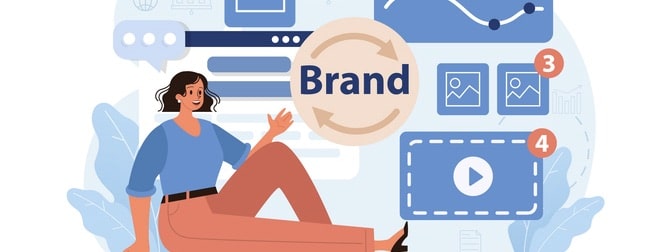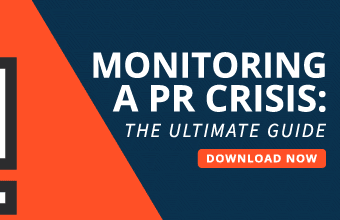There is no doubt that the COVID-19 crisis is changing the corporate world. As an agency leader in one of the hardest hit industries—event marketing—the scramble to find solutions has been intense, though humbling when I compare my workdays to that of a frontline worker such as my husband, a firefighter for the Los Angeles Fire Department.
It may feel overwhelming at times, but there are signs and research showing that we will eventually return to our most-missed social activities, including events, traveling and school.
That said, few of us are equipped to deal with a crisis of such epic proportions. It takes relatable life experience and a knowing calm to navigate these inherently anxiety-inducing times. Take it from me—my home burned down in California’s 2017 Thomas Fire. My husband and I evacuated our two young children and dog in the middle of the night assuming we would be back in the morning. Instead, we heard the unfathomable: our house and all our belongings were reduced to ash. The long road of rebuilding while simultaneously juggling parenting and my agency career taught me how to truly manage a crisis. Here are three crucial skills you can learn from my experience to help you be ready for any crisis:
1. Validate and offer solutions
In the first few days after losing our home, we received an outpouring of support and compassion. Many were extremely encouraging, telling me this actually could be a good thing that gave us the chance to build our dream house. Although this positive message was well-intentioned, it was the opposite of what I needed to hear at that time. All I wanted was an acknowledgement of my concerns.
Many of us, including clients, have a similar mindset during this phase of the COVID-19 situation, and in the early stages of most crises. Agencies may be anxious to create plans for the end of shelter in place and the eventual “back to normal” timeframe, but your client still may be overwhelmed with urgent needs. Before diving into Plan B, recognize the impact to your individual client. Ask them how they are doing on a personal level as well as the state of their business. Discuss their concerns while also staying solution oriented.
As the conversation continues, show them that their crisis is your priority with heightened responsiveness and thought-through, timely deliverables. This approach will help direct the tone of the conversation and encourage a positive response that bolsters the client relationship and helps to maintain the business.
2. Be well-informed and forward-thinking
The more educated you are on the big picture, the better decisions you can make when it comes to the details. This became painfully clear when, months into rebuild planning, we realized that we had no idea how long it would take, how much of our time construction oversight required, the process of releasing insurance funds or the overall impact on our family time. If we had only asked the insurance adjuster these questions in our first meeting and followed up by conducting our own research directly with builders, we would have saved ourselves a lot of headache.
The same is true with managing emergencies in business. You should never assume that you are getting the whole story from a client. Likely, they are telling you the “need to know” updates for your specific efforts but might not offer details about periphery operations. While a good agency partner should always be well-informed on their client’s business and industry, in times of crisis it is crucial to educate yourself on all aspects of the brands you support, including production, sales, competitor activity, etc. Once you fully understand the current situation, you can dive deeper into the areas that pose potential issues, set and re-set expectations as the situation evolves, and create more focused plans.
Recently, while discussing COVID-19 sales impact and further probing into its effects on operations and supply chain with a breakfast bar client, it was discovered that there might be issues with production keeping up with demand. This meant that our upcoming sampling initiative could be further delayed waiting on production or that we might see reduced KPIs reflecting the limited samples available. Had we not researched COVID-19’s impact on the shelf-stable CPG industry, we would not have known to ask the client about product availability for our needs. Likely, we would have received this information much later into the planning process having first spent significant time working against the wrong numbers. With this information up front, the pivot was less painful and more successful.
3. Be fair
Immediately after the fire, when thousands of families were looking for build support and home rentals, I heard countless stories of sudden and absurd price spikes with both. While some contractors and leasers might have gotten away with making a quick buck, their reputations will be forever tainted within the community. Two and a half years later, I can definitively say that the small profit boost wasn’t worth the long-term loss.
As much as you may want to save revenue during this economic recession, this is the time to do what is right. It’s not a time to capitalize on your client’s vulnerable position. Don’t push adjustments that won’t support the brand narrative during this unique situation, even if it supports the original objectives. Focus on being collaborative and building trust both between the brand and its target audience as well as between your agency and the client team. Strategies should concentrate on being sensitive to relevant audiences most affected and should position your client’s brand as part of the solution. Advise your clients to make reputation-building moves with their consumer base to strengthen brand perception, whether those moves benefit your agency or not. Although cliché, it’s true that times of crisis are opportunities to come together and help each other. Your client counsel should reflect that.
My friends joke that I can be a bit of a doomsday prepper. But I wear that moniker as a badge of honor for what I have gone through and how it has improved my mindset. My new approach provides peace of mind and confidence in potential results. While there is no doubt that emergency situations will have some lasting effects, the change to day-to-day life is only temporary. A crisis doesn’t have to mean automatic loss in business. Strategically and calmly navigating these experiences can get you to the other side stronger than ever before.








